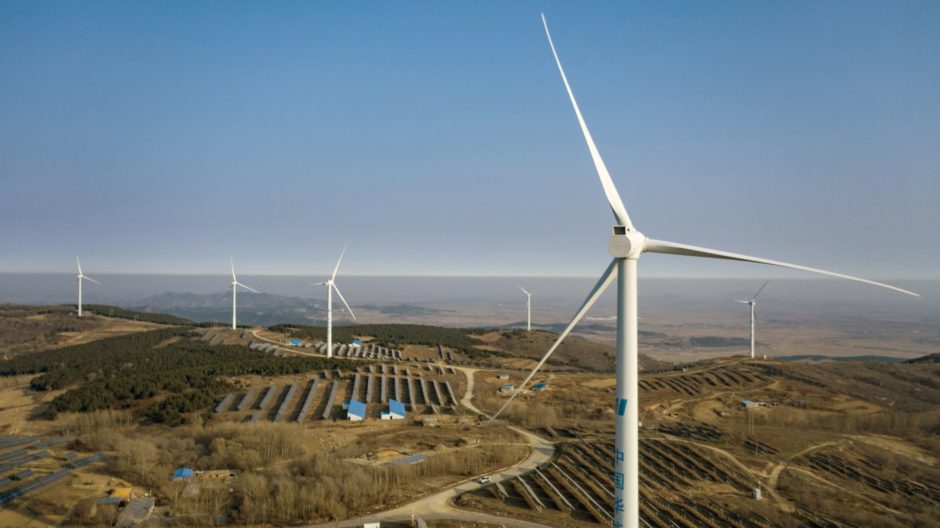
The China-based Asian Infrastructure Investment Bank (AIIB) and the International Renewable Energy Agency (IRENA) have signed a memorandum of understanding committing to work together to support Asia’s energy transition and mobilise greater private capital for renewable energy. Significantly, the AIIB has been viewed in some quarters as a potential rival to the World Bank and IMF.
Today, Asia is home to about 60% of the world’s population and contributes almost 50% of global energy-related greenhouse gas emissions. The region accounts for nearly half of global renewable-energy capacity, according to IRENA, up from less than one-third a decade ago. However, relative to its size, Asia still lags behind, with renewables making up less than 15% of total primary energy consumption in 2020.
Moreover, developing countries in Asia are expected to account for about two-thirds of global energy growth by 2040. With its vast wealth of affordable and sustainable energy resources, such as hydropower, wind and solar, it is essential that this growth is met by renewable energy capacity, AIIB and IRENA, said in a joint statement yesterday.
Separately, Chinese leader Xi Jinping said yesterday that China would not build new coal-fired power projects abroad, using his address at the United Nations General Assembly to add to pledges to deal with climate change. Xi provided no details, but depending on how the policy is implemented, the move could significantly limit the financing of coal plants in the developing world, reported Reuters.
Meanwhile, the Beijing headquartered bank and IRENA said they will work together to accelerate investment and enhance awareness of renewable energy solutions throughout Asia.
“With Asia’s growing energy demand, and the rising challenges from climate change, we need to ensure the region invests more than ever in renewable energy and energy efficiency to facilitate their transition to low carbon energy mix. This partnership is part of the Bank’s journey toward realising the goals set out in the Paris agreement,” said Jin Liqun, president of the Asia-focused multilateral development bank.
Under the terms of the AIIB-IRENA MOU, both the bank and IRENA agreed to scale-up their efforts to unlock capital and accelerate the uptake of renewable energy by AIIB members.
IRENA Director-General, Francesco La Camera, highlighted this agreement bolsters IRENA’s efforts to facilitate the flow of low-carbon capital into the energy transition where it is needed most, including through the Climate Investment Platform, a multi-stakeholder initiative designed to mobilise climate capital, of which IRENA is a founding member.
Under its Corporate Strategy, AIIB will aim at reaching or surpassing by 2025 a 50% share of climate finance in its actual financing approvals, reflecting its commitment to support the Paris Agreement, it said.
The bank is partnering with IRENA to support AIIB’s green mandate and help the bank achieve its ambitious climate finance targets. AIIB said it is already playing an important role in increasing private sector investment in the renewable energy sector. Over the last five years, AIIB has invested in 12 renewable energy projects, amounting to $1.25 billion in Egypt, India, Kazakhstan, Maldives, Oman, Pakistan, Tajikistan, Turkey and Nepal.
Further, 71% of AIIB-financed installed power capacity was in renewable energy with about 940 MW renewable energy capacity added annually. AIIB has also invested at least $500 million in on-lending for renewable energy projects through financial intermediaries such as the Tata Cleantech Sustainable Infrastructure On-Lending Facility in India and the SUSI Energy Transition Fund dedicated to Southeast Asia.
The starting capital of the bank was $100 billion, equivalent to two-thirds of the capital of the Asian Development Bank and about half that of the World Bank.
The bank was proposed by China in 2013 and the initiative was launched at a ceremony in Beijing in October 2014. It received the highest credit ratings from the three biggest rating agencies in the world, and is seen as a potential rival to the World Bank and IMF.
“There is no consensus in the United States about the role of the AIIB. G. John Ikenberry of Princeton University sees the AIIB as part of China’s emerging institutional statecraft, but argues that it is not clear whether the institution will tie China more deeply into the existing order or become a vehicle to challenge the order. Phillip Lipscy of Stanford University argues that the United States and Japan should support the AIIB to encourage China’s peaceful global leadership and discourage China from pursuing coercive or military options. On the other hand, Paola Subacchi of Chatham House argues that the AIIB represents a threat to US-dominated global governance,” according to Wikipedia.
Recommended for you

